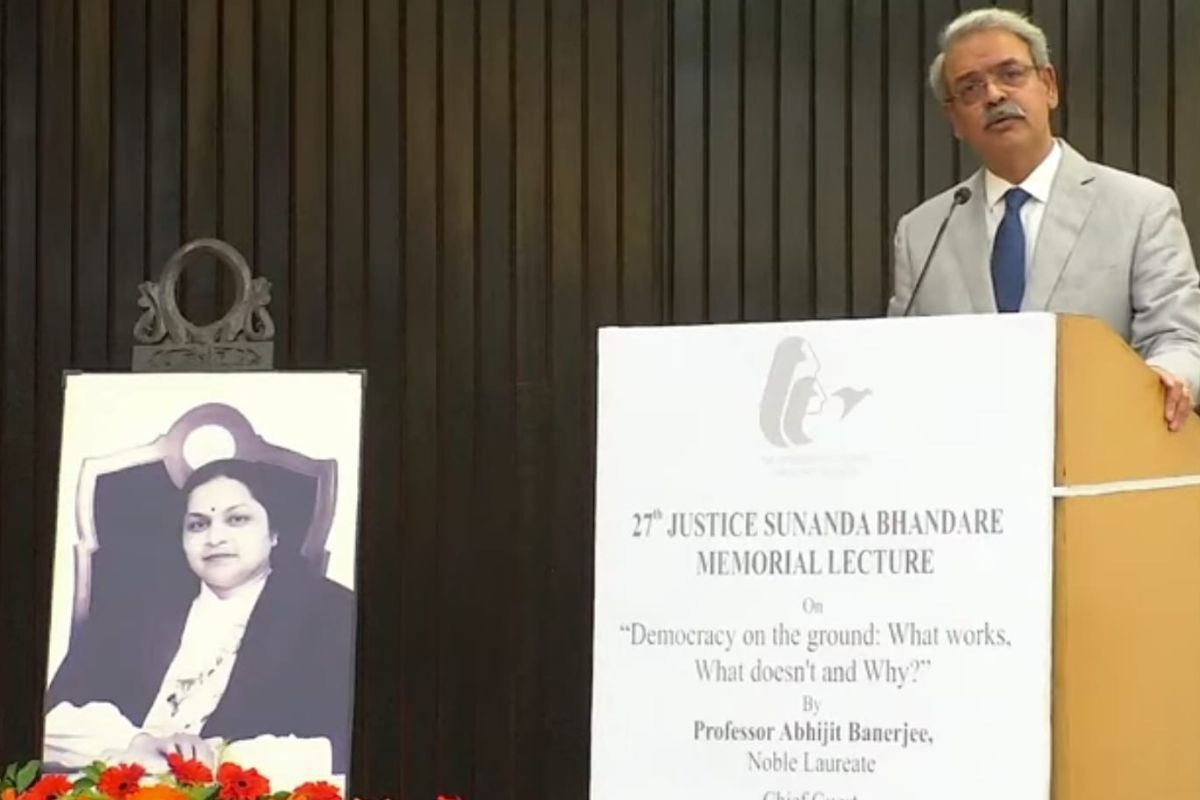Delhi HC refuses urgent hearing on PIL by retired judge against cash-based schemes by political parties
The Delhi High Court on Monday declined to grant an urgent hearing on a Public Interest Litigation (PIL) filed by a retired judge.
Justice Siddharth Mridul said, “We are completely divorced from reality when it comes to electing our representatives. It is unfortunate since I thought who would aspire to serve the people would begin on the premise of ‘antyodaya'”

The performance of a candidate may not guarantee his/her re-election, says Justice Siddharth Mridul of the Delhi High Court.
Justice Mridul shared valuable insight at the 27th Justice Sunanda Bhandare Memorial Lecture.
Advertisement
He also underlined that the judiciary has a key role to play in ensuring that there is socio-economic, political freedom and equality in the country.
Advertisement
The 27th Justice Sunanda Bhandare Memorial Lecture was delivered by Nobel Laureate Professor Abhijeet Banerjee on the subject–“Democracy on the Ground: What works, What doesn’t and Why?”
On the occasion, Professor Banerjee said there are many challenges of democracy and “we are dealing with the structural problems and some of democracy failures come from design”.
“We have a fundamental problem with the design of democracy,” he said.
“Why was the urban system of Panchayati Raj not implemented,” he wondered.
Justice Mridul also lamented that the voters were completely divorced from reality when electing their representatives.
”I would have thought that all those who aspire to serve the people would begin on the premise of ‘antyodaya’, which is the rise of the last person, the lowest economic denominator. And it is precisely this where I believe that the judiciary has a very important part to play because law without politics is blind, and politics without law is deaf,” he said.
“Judiciary as an institution is not just a sentinel to safeguard the fundamental rights of people but to ensure that there is socio-economic and political freedom in India and equality,” he added.
Professor Banerjee said the states in India are too large and he was of the view that in order for democracy to work there was need of smaller units.
Reacting to Professor Banerjee, Justice Mridul said, “Professor Banerjee spoke about smaller constituencies in terms of people, but I am a little ashamed to tell you that I read a report which says that smaller states in the North East, where population is sparse compared to other parts of India, anybody intending to contest elections for the post of an MLA needs to have a war chest of at least Rs 50 crore. Those are the realities of our democracy.”
Advertisement